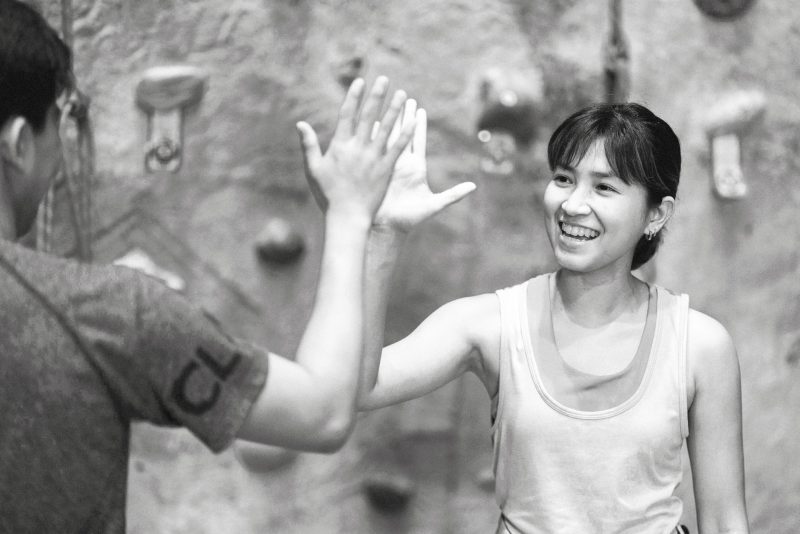Amber, a recent college graduate who just completed her bachelor’s degree, has been applying for various job positions but has not received any interview calls. While scrolling through social media, Amber came across a post by her past college friend, Nina, where she saw many people congratulating Nina for getting a job at a top company.
This news triggered some negative feelings in Amber. Have you ever found yourself in a situation similar to hers? What Amber experienced was jealousy, an emotion characterized by bitterness towards the happiness, abilities, or good fortune of others. It can arise when an individual sees someone else achieve or possess something they don’t have.
Despite that, did you know it is possible to transform those negative emotions into joy? By practicing a technique introduced by Buddha, called Muditā, you can experience the same positive feeling as the person you were jealous of.
What is Muditā?
The Sanskrit word Muditā means “appreciative” or “unselfish joy.” It is a term that describes the feeling of being happy for others and is one of the three Brahma Viharas in Theravada Buddhism, which refers to the state of ideal heart conditions or the characteristic of an enlightened person. The three other Brahma Viharas include Metta (loving-kindness), Karuna (compassion), and Upekkha (equanimity).
Muditā is important to help you break down the false duality between self and others, free people from envy and jealousy, and allow individuals to participate in the joy of others. You can observe Muditā in daily life, such as a teacher being happy for her student’s improvement or a parent shedding tears when their toddler learns to walk.
How does it work?
To cultivate Muditā, Buddha taught a practice called Appreciative Meditation, which involves being aware of and appreciating one’s efforts, celebrating joys, and being grateful for one’s existence before extending it to others. This can be accomplished by:
Remembering some moments that cultivate your joy
Reflect on some events when you have felt joy in your own lives. It could be your school graduation, or when you received a present from someone. Small or big events don’t matter.
Imagining your loved ones experiencing similar situations
Next, try to remember your loved ones when experiencing similar moments of joy. For example, you can try to imagine their expressions in their happiest moments.
Connect your joy with the joy of others
After imagining other people experiencing joyful moments, you try to link your own feelings of joy to theirs and cultivate them further. This helps to recognize that their happiness is intimately linked to your own.
Create others’ joy with your own hands
The next step in cultivating Muditā is to actively work towards creating joy for others. This can involve acts of kindness, generosity, or simply being present for others.
Practice gratitude
Last but not least, it is important for you to acknowledge the good things surrounding your own life to cultivate a feeling of joy toward others. Set aside time each day to write down things you are grateful for. It can be as simple as appreciating a delicious meal or your sound sleep.
Benefits of Muditā
In moments of relaxation, you can learn to cultivate healthy feelings of joy by thinking back on positive experiences and emotions. Focusing on the good will give you more peace. Now explore the benefits that you can enjoy after you practice Muditā. These include:
Increasing empathy and prosocial behavior
Practicing Muditā is about celebrating the positive aspects of others’ lives. By doing so, you can shift your attention away from self-centered thoughts and become more aware of the feelings others are experiencing.
Doing so can then increase your empathy to understand others’ experiences better. In addition, feeling joy for others will make you feel deeper connections with them, which will help you to become more willing to help people you are connected with.
Cultivating unconditional love and compassion
Through Muditā, you can intentionally expand the capacity for love beyond your personal interests towards a more inclusive and unconditional love without thinking about other circumstances or how they relate to you personally.
Moreover, practicing Muditā helps cultivate more self-love and acceptance. By not taking others’ accomplishments as a threat, you can learn to realize and appreciate your own positive qualities, leading to greater self-compassion.
Living with more liberation
Embracing joy for others’ accomplishments also teaches you to let go of negative emotions such as jealousy, envy, and resentment, which can be a source of suffering and limit your own happiness. Therefore, you’ll be free from the need to compare and compete.
In conclusion
Fostering Muditā is a great way to increase joy, self-worth, and self-acceptance. Learning to be happy for others creates space for personal growth and allows individuals to thrive without relying on someone else’s progress. As a final point, remember never to let self-comparisons steal your happiness!
If you would like to see more resources on joy, check out the Happiness Science Labs. The lab uses the research of the Institute for Life Management Science to produce courses, certifications, podcasts, videos, and other tools. Visit the Happiness Science Labs today.
Photo by Allan Mas




